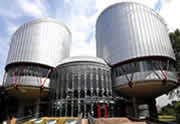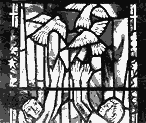Sandra Uttley (Nationality:
British)
[Ed ~ Address removed at the behest of
the Petitioner]
Email: SandraUttley@aol.com
Tel: 01947 840071
COUNTRY AGAINST WHICH I AM MAKING MY APPLICATION: BRITAIN/SCOTLAND
IN BREACH OF ARTICLE 2 OF THE ECHR (see below)
To:
The Registrar
European Court of Human Rights
Council of Europe
F-67075 Strasbourg Cedex
France
The Cullen Inquiry into the Shootings at Dunblane Primary School was set up under the terms of the Tribunals of Inquiry (Evidence) Act 1921. An Inquiry set up under the 1921 Act is as a result of an incident that causes grave public concern and is necessary to allay public anxiety. Such inquiries are investigative in nature and therefore involved in fact finding. It is imperative that such an Inquiry is seen to be independent, transparent and effective. The sealing of all the original Inquiry papers for 100 years has inhibited the allaying of public concern. Ultimately, the Dunblane Inquiry was not transparent as the public did not see the original documents.
Furthermore, where lives have been taken, the Right to Life under Article 2 of the European Convention of Human Rights must be taken into consideration. Article 2 imposes on the state both negative obligations not to take life intentionally, and positive obligations to protect life. Article 2 requires an investigation that is independent from those implicated in the events under scrutiny.LINK The Crown Office decision to have Central Scotland Police - the licensing authority for Thomas Hamilton’s firearms certificate – carry out the investigation into the background to the murders and attempted murders at Dunblane Primary School on 13 March 1996 is therefore in contravention of Article 2.
Secondly, Article 2 requires that, where the right to life is engaged, an inquiry must not only be independent but also effective in providing a sufficient explanation for the circumstances of the death(s). Given the glaring anomalies in the Dunblane Inquiry – inconsistencies in witness testimony, incorrect information given on oath by certain witnesses, the absence of vital witnesses – I allege that Lord Cullen’s Inquiry into the shootings at Dunblane Primary School was ineffective. As a member of the public and a former resident of Dunblane, my concerns about the Dunblane massacre have certainly not been allayed. As a consequence I have been made a victim of the British state cover-up of the truth about the Dunblane massacre.
The state is under a duty to properly investigate deaths that are not directly caused by public authorities or where the state might have in some way contributed to the death or provided the opportunity for it. The Dunblane Inquiry was set up under the terms of the 1921 Act for this reason. In failing to meet the terms of that Act I allege that my human rights as a member of the British public have been breached. Given that the European Convention on Human Rights has been in existence since 1950, the conditions relating to Article 2 and the Right to Life should have been observed at the Dunblane Inquiry. I have been making my concerns known to the Scottish Executive, the Scottish Crown Office and the British Government for over 2 years. My request for a New Inquiry has continually been refused.
The Cullen Inquiry into the Shootings at Dunblane Primary School did not meet the following essential criteria:
1/ INDEPENDENCE: Central Scotland Police was chosen to investigate the background to the murders by Thomas Hamilton, even though they were implicated in the events under scrutiny;LINK
2/ TRANSPARENCY: the original preparatory material from the Dunblane Inquiry has been (illegally) locked away for 100 years, despite the public never having had the chance to see these documents;LINK
3/ EFFECTIVENESS: Lord Cullen did not read any of the preparatory material; certain witnesses gave ‘incorrect’ information on oath; other witnesses gave testimony different to what they said in their original police statement; vital witnesses were not called to give evidence.LINK
All-in-all, the Dunblane Inquiry was ineffective in providing a sufficient explanation for the circumstances of the deaths of 16 schoolchildren and their teacher, and the attempted murder of a further 12 children and 3 teachers. The human rights of many people were breached – before, during and after the Dunblane incident – but I am taking this case as a private individual as an act of moral concern, and because of the severe distress caused to myself as a consequence of this massacre in the small town where I lived, and the delays and obfuscation in correspondence with the British state over the last 2 years.
Yours sincerely
Sandra Uttley


Credit to Tom Minogue for unearthing the Spec roll of dishonour and also its founding members.








